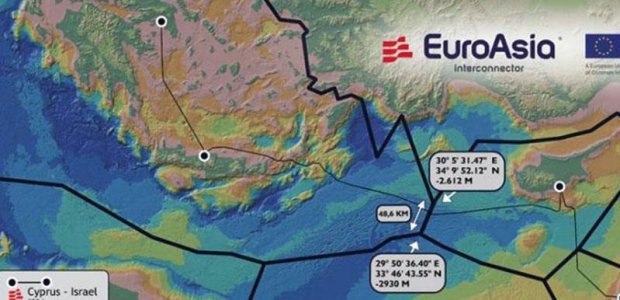Currently examining financial details concerning the Eurasia Interconnector, an ambitious plan whose development would link the Greek, Cypriot and Israeli power grids, the consortium behind the project has proposed that the Greek grid and its users assume 60 percent of the interconnection’s total construction cost.
Studies concerning the project’s development, receiving European Commission support, are making smooth progress but negotiations regarding the share of its cost could turn into an obstructive issue.
At this stage, the Eurasia Interconector project is seen as the most realistic and sustainable proposal made so far to utilize the east Mediterranean’s rich energy reserves and export energy from the region to European energy markets. Cyprus’s energy isolation would also end.
Officials are currently also examining the propect of linking the Eurasia Interconector with other regional projects, the planned Crete-Athens interconnection dominating these thoughts.
An initial estimate of the Eurasia Interconector’s construction cost, at European and national levels, is soon expected. Once provided these figures, officials will need to begin fine-tuning all the cost-related details, including how these will be divided up between all project participants and beneficiaries.
The Eurasia Interconector project’s submarine cable is expected to cover a length of 1,500 kilometers and possess a transmission capacity of 2,000 MW.
It has been classified as a Project of Common Interest (PCI), which facilitates EU funding. The consortium behind the project hopes that approximately half of the project’s budget, estimated to reach 3 billion euros, may be covered through EU funding.





